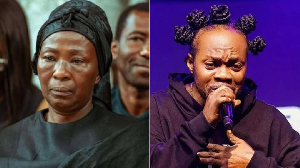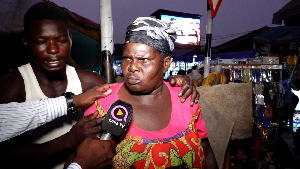Essikadu(W/R), Dec. 29, GNA - Six paramount chiefs in the Ahanta and Shama Traditional Areas in the Western Region have resolved to establish a high-powered peace committee to investigate, mediate and resolve chieftaincy and land disputes in their areas by the first quarter of 2007.
This was part of a resolution adopted by the paramount chiefs and opinion leaders from the areas after their meeting at Essikadu on Tuesday.
The six paramount chiefs who signed the resolution were, Nana Kobina Nketsia V, Omanhene of Essikadu Traditional Area, Nana Baidoo Bonsoe XV, Omanhene of Ahanta Traditional Area and Nana Amoako Agyebu V, Omanhene of Lower Dixcove.
The rest were, Nana Essuakyi Achmsu, Acting President of Upper Dixcove Traditional Council, Nana Tsetse Appou 11, Acting President of Sekondi Traditional Council and Nana Kweku Binnah 111, Omanhene of Shama Traditional Area.
The resolution said to avoid litigation in their areas, chiefs in Ahanta and Shama Traditional Areas were reverting to their customary practices and all indentures in the six traditional areas would have to pass through their traditional councils before being forwarded to the Lands Commission.
It appealed to the Lands Commission to adhere strictly to the ancient customary practices of the people with regard to land use in order to avoid or minimise land litigation cases in their traditional areas.
The resolution said a committee was to be set up to visit all the traditional areas to discuss the dignity, status and respect for the chiefs.
It said the committee would in addition examine the relationship between the various state institutions and indigenous institutions. The resolution said there would be frequent joint meetings of chiefs from the six traditional areas in future.
It said an Ahanta Shama Educational Trust Fund would be established in 2007 and appealed to the Ghana Education Service, Ministry of Chieftaincy Affairs and Culture and Commission on Culture to ensure that the heritage and culture of the people of Ahanta and Shama were taught in schools in their traditional areas.
Regional News of Friday, 29 December 2006
Source: GNA












